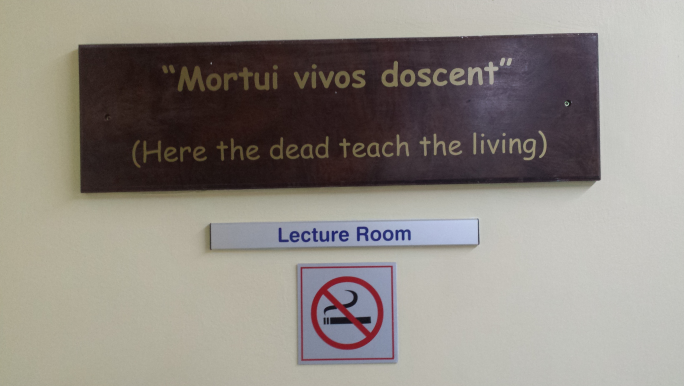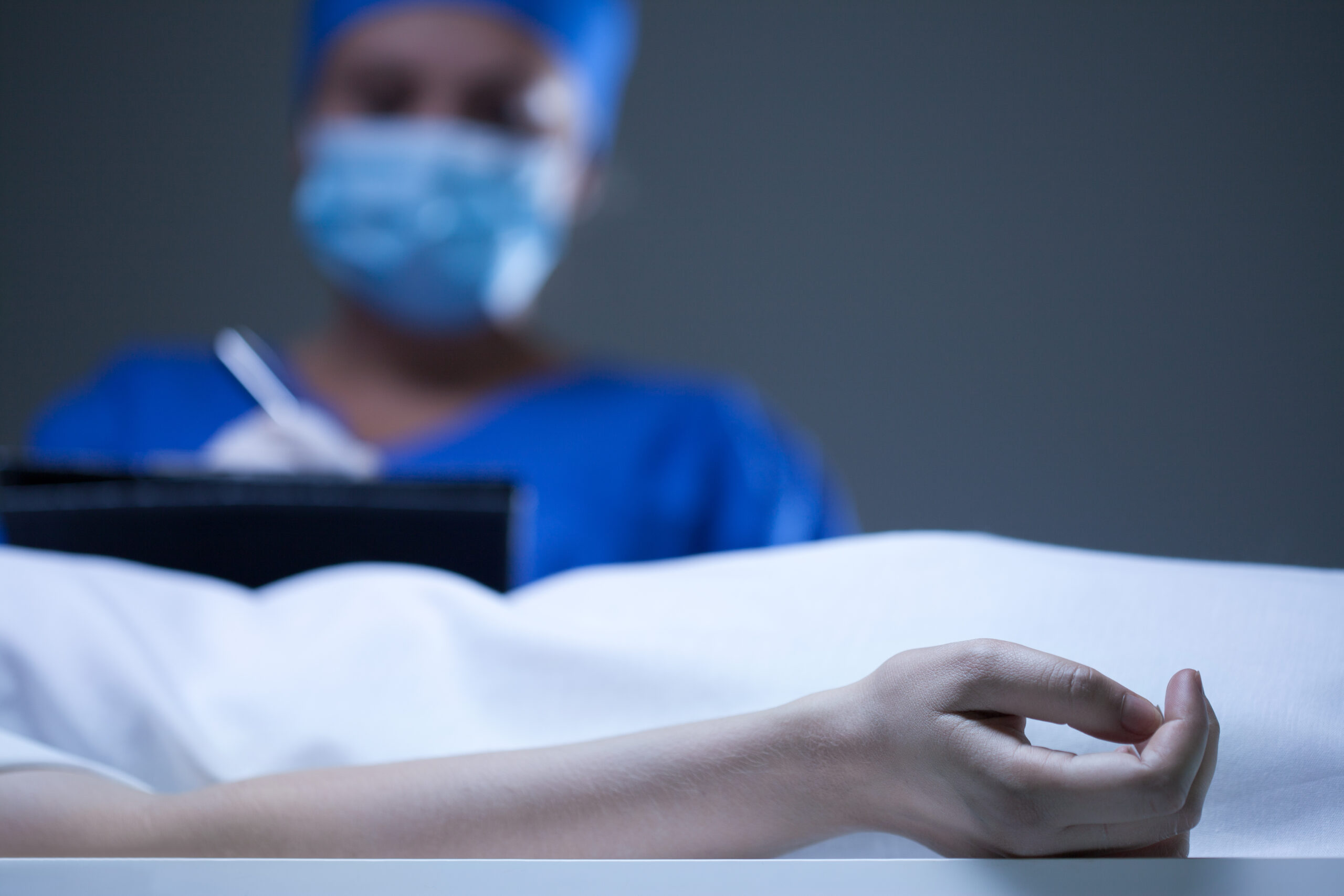Last week I completed my Forensics rotation, which is essentially a 5th year medical student’s first exposure to a fresh dead body – 3 cases a day for 5 days. I sound like a bit of a psycho emphasizing the fact that the bodies were, in fact, fresh dead bodies, but allow me to contextualize.
I remember standing in the anatomy dissection hall as a 2nd year surrounded by cadavers covered in white plastic, and reeking of Formaldehyde. An eerie sobriety fell over us as the lecturer told us to uncover – and meet – our cadaver for the first time. I was terrified; my only aim was not to pass out or throw up. A few students failed in that regard, on that fateful day – but we won’t mention names.
Those dissections proceeded to kick my butt for the following 4 weeks, and because I was such a wonderful student they allowed me to continue for another 8 weeks when I didn’t promote, so that I had the luxury of sitting the exam. I’m sure you can visualise the pain involved – for both me and my cadaver. Needless to say, most of us survived and dissections are now but a distant memory for us all.
Although this time around we only had to observe the autopsies, you never know how you’re going to react until you’re there, and a fresh body is a whole different ball-game. Needless to say I had a few nightmares leading up to the rotation, but handled the rest like a pro – with only mild breakdowns on an hourly basis throughout that week [joking!].
People give you tips: “View it academically!”, and “Don’t get emotional”, but as I watched the pathologist on duty [who could also pass as the most gentle butcher you’d ever meat …sorry, I couldn’t resist], my stomach churned. I nervously glimpsed to the left and right, and then the sign on the wall caught my eye: “The living close the eyes of the dead, and the dead open the eyes of the living. BING! I had a realization:
It’s not about me. It’s about them.
The variety of cases we saw – all unnatural deaths – were people who once breathed and also had favourite colours and who filled roles such as father, and sister. I refused to view them merely as ‘academic cases’, because their new roles were so obviously ones of teachers in forensic pathology now. Viewing it like this made a world of difference, and if you ever have such an opportunity, I hope that you can also realise the privilege it is to be witness to people who are in the most vulnerable position you can ever be in as a human being – dead on an autopsy table.
As a med student you will hold a newborn baby in your arms, and you will hold a human brain in your palms, and you will hold hope in your abilities as you grow into a ‘bigger Doctor’ each year. From now on, however, I will always hold dear the ‘dance with death’ we witnessed during that cold, rainy week of our Forensics Rotation.

Don’t live a dying life
Written by Nadine Hugo, 5th year MBChB

